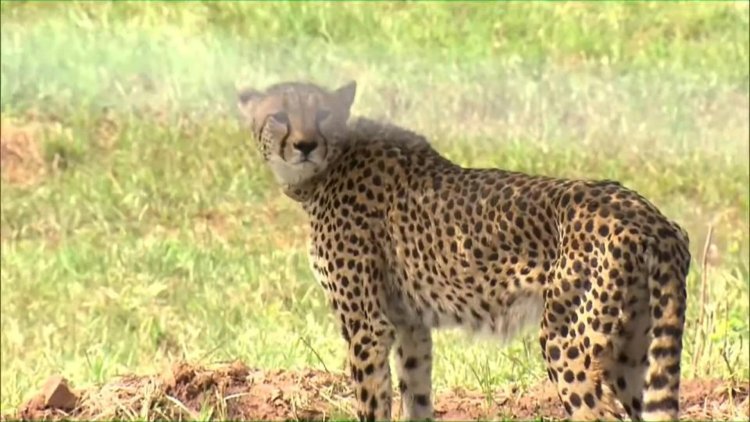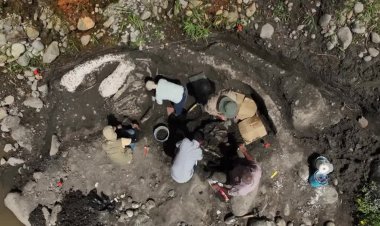India welcomes back cheetahs, 70 years after local extinction

Eight Namibian cheetahs arrived in India, decades after their local extinction, in an ambitious project to reintroduce the big cats that has divided experts on its chances for success.
Officials say the project is the world's first intercontinental relocation of cheetahs, the planet's fastest land animal.
The five females and three males were flown from a game park north of the Namibian capital Windhoek aboard a chartered Boeing 747 dubbed "Cat plane" for an 11-hour flight.
Prime Minister Narendra Modi presided over the release at Kuno National Park, a wildlife sanctuary 320 kilometers south of New Delhi selected for its abundant prey and grasslands.
Each of the animals, aged between two and five and a half, have been fitted with a satellite collar to monitor their movements.
They will initially be kept in a quarantine enclosure for about a month before being released in the open forest areas of the park.
Critics have warned the creatures may struggle to adapt to the Indian habitat.
India was once home to the Asiatic cheetah but it was declared extinct there by 1952.
The critically endangered subspecies, which once roamed across the Middle East, Central Asia and India, are now only found, in very small numbers, in Iran.
Efforts to reintroduce the animals to India gathered pace in 2020 when the Supreme Court ruled that African cheetahs, a different subspecies, could be settled in India at a "carefully chosen location" on an experimental basis.















